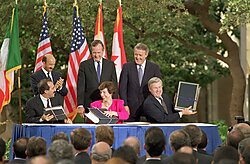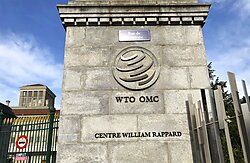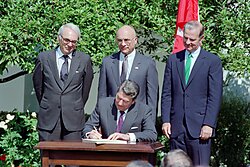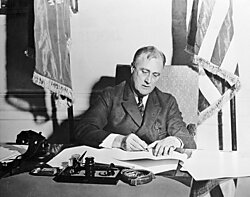Numerous domestic laws regulate trade, migration, and capital flows. Governments enter into bilateral and multilateral agreements to liberalize trade among them, lock in these commitments, and establish venues for resolving disputes over subsequent cross-border transactions and domestic policies that affect them. And, given the role of government in modern trade and immigration policy, globalization and its effects are a frequent topic in politics and elections, especially today.
Far too often, however, trade laws and agreements—and what voters think of them and globalization more broadly—are misunderstood, with potentially serious consequences for politics and policy. The essays in this Defending Globalization series will educate readers on the law and politics of globalization in brief, accessible language written by experts in the field. Readers will be left with a fuller understanding of what scholars know about globalization, trade laws and agreements, and the politics of globalization in the United States.













